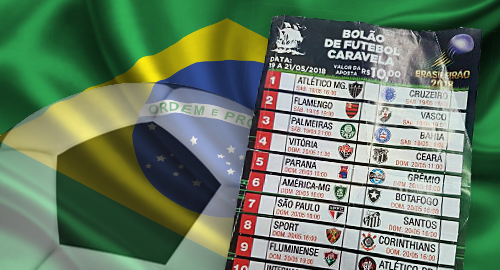 Brazil’s ongoing failure to pass new gambling legislation has created a void that the country’s unauthorized operators are only too happy to fill.
Brazil’s ongoing failure to pass new gambling legislation has created a void that the country’s unauthorized operators are only too happy to fill.
This week, the Rio de Janeiro-based O Globo newspaper reported that the illegal operators behind the popular ‘jogo do bicho’ (animal game) lottery have branched out into sports betting to take advantage of the growing excitement over next month’s kickoff of the 2018 FIFA World Cup in Russia.
Jogo do bicho traditionally offers players a selection of animal pictures, each one associated with four numbers. If one of these numbers matches the last two digits of the official state lottery drawings, the ticket is a winner.
O Globo claims jogo do bicho operators are now offering a couple sports betting variants, including one called Lotto do Bicho. It’s essentially parlay wagering, presenting a sheet with a list of football fixtures from local leagues to European matches, on which bettors can pick one team to win or the match to end in a draw.
The operators behind these products are increasingly high-tech, registering a punter’s preferences and collecting their money via portable electronic card-swiping devices, while punters receive a custom printed ticket as their own record.
This new betting options are horning in on what had been the exclusive turf of the Caixa Economica Federal’s sports lottery products, Lototeca and Lotogol. Naturally, lottery bosses are now calling for the police to crack down on these operators, despite the original jogo do bicho having been around since roughly 1890 with no sign of dying out soon.
The new Lotto do Bicho may in fact offer a better value for bettors, given that Brazilian law currently caps the maximum payout to sports lottery punters at a mere 46% of total handle for any product.
Brazilians are still out of luck when it comes to having a local fixed-odds sports betting product on which to wager, although Caixa optimistically put out feelers last November for a consultant who could help them structure a fixed-odds operation.
Brazil has spent the past few years debating two separate pieces of gambling expansion legislation, but bickering among politicians, stakeholders and the local Catholic clergy have kept these bills on the back burner.
In the meantime, it looks like another highly successful summer of sport for internationally licensed online gambling operators, who continue to offer Brazilian punters a way out of this legislative morass. Olé, olé, olé, indeed…